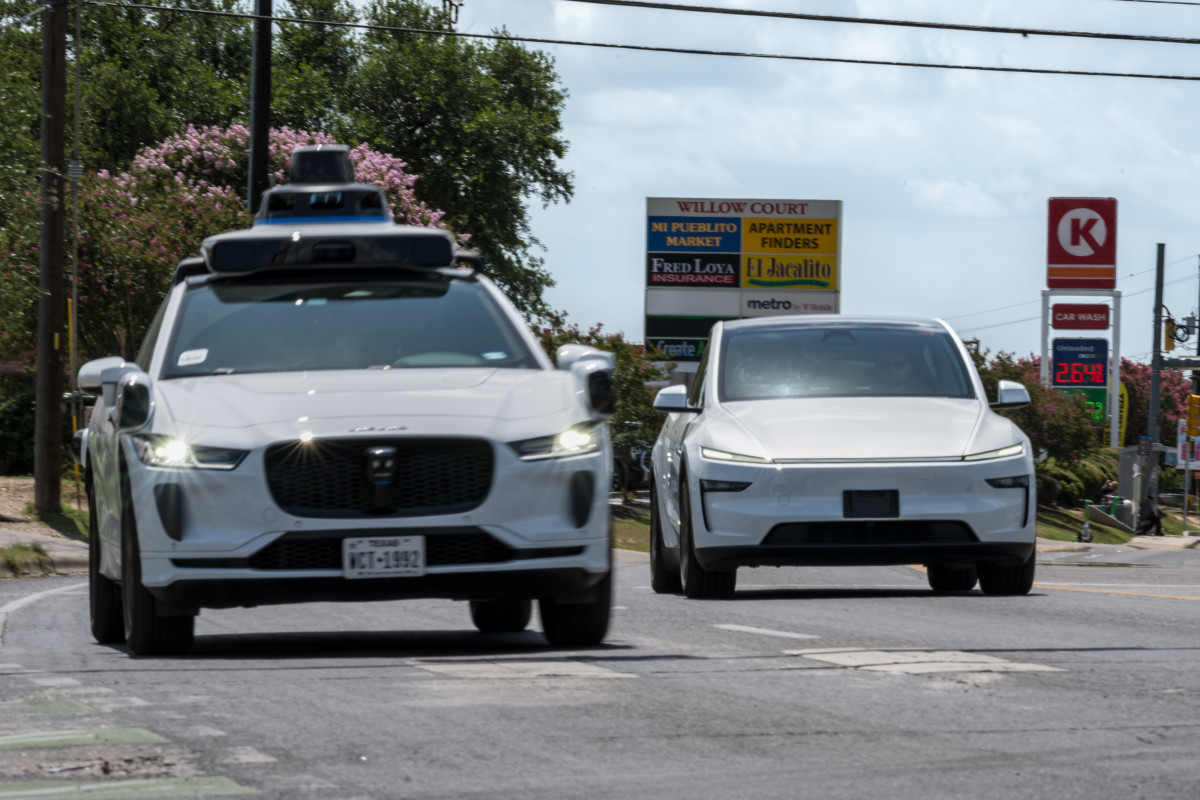Many investors believe autonomous driving is the future of transportation, and some are willing to bet millions on it.
Ark Invest CEO Cathie Wood is probably the most vociferous evangelist for the multi-trillion-dollar opportunity Tesla has with its Robotaxi program.
Meanwhile, Alphabet subsidiary Waymo has become the autonomous ridesharing industry leader over the past five years.
In April, Waymo said it was delivering over 250,000 paid rides per week in the U.S., a big jump from the 200,000 it reported in February.
Waymo quick facts:
- Founded in 2009.
- Passed the first U.S. state self-driving test in Las Vegas, Nevada, in 2012.
- Spun out from Alphabet as a separate subsidiary in 2016.
- As of July 2025, Waymo One is available 24/7 to customers in Los Angeles, Phoenix, and the San Francisco Bay Area.
- The current Waymo fleet features over 1,500 vehicles. By 2026, the company expects to add 2,000 more.
- Surpassed 100 million miles of autonomous driving in July 2025.
- Waymo plans to launch in Miami, Dallas, and Washington in 2026 and recently announced expansion plans for London.
However, as it expands its reach, Waymo faces more scrutiny. The National Highway Traffic Administration recently opened an investigation into an autonomous driving issue that could endanger schoolchildren.

Bloomberg/Getty Images
NHTSA opens investigation into Waymo after robotaxi fails to stop for school bus
Earlier this year, Tesla Robotaxi took some heat after a video surfaced of an autonomous Tesla ignoring a school bus stop sign, speeding past the vehicle, and hitting a child dummy in a simulated test.
Now NHTSA is probing Waymo for a similar issue.
Related: Waymo shows the secret to avoiding traffic tickets in funny video
NHTSA opened a Preliminary Evaluation to investigate an estimated 2,000 Waymo 5th-gen automated driving system-equipped vehicles.
The agency is investigating “traffic safety violations relating to stopping when encountering a school bus, particularly when the bus is boarding or offboarding students.”
The investigation arose following a media report that showed the vehicle failed to remain stopped when approaching a school bus that was stopped with its red lights flashing and stop arm deployed.
NHTSA’s notice explained what happened:
The AV initially stopped, but then drove around the front of the bus by briefly turning right to avoid running into the bus’s right front end, then turning left to pass in front of the bus, and then turning further left and driving down the roadway past the entire left side of the bus.
NHTSA Notice
The notice also indicated: “During this maneuver, the Waymo AV passed the bus’s extended crossing control arm near disembarking students (on the bus’s right side) and passed the extended stop arm on the bus’s left side.”
No safety operator was in the vehicle at the time of the incident.
“Operations involving Waymo’s ADS currently accumulate approximately two million miles weekly. Based on NHTSA’s engagement with Waymo on this incident and the accumulation of operational miles, the likelihood of other prior similar incidents is high,” NHTSA said.
Activists question the safety of autonomous driving on city streets
While Waymo operates in major cities across the country, and its robotaxi slowly expands its footprint in some of those same cities, some city dwellers do not like the idea of robots operating two-ton vehicles with little oversight.
Advocacy groups are making their voices heard in New York City, where Waymo recently received permission to conduct tests.
“This was a pilot initiated with very little public input,” Michael Sutherland, a policy researcher with Open Plans, told Gothamist. “From a safety perspective, this is a technology that hasn’t been tested out in incredibly dense cities like New York City.”
Related: Tesla Robotaxi pulls ahead of Waymo in San Francisco
And it’s not just a New York thing.
Nearly 80% of California voters support requiring a human safety operator in self-driving trucks and delivery vehicles, and just 33% of voters express a favorable general impression of autonomous vehicles.
Waymo says compared to those with human drivers, its autonomous vehicles have been involved in 88% fewer crashes with serious injuries.
However, groups such as Safe Street Rebels say they have documented hundreds of crashes and failures by autonomous vehicles over the years.
Related: Tesla Robotaxi fails miserably in Cathie Wood street test
#Waymo #microscope #latest #mistake